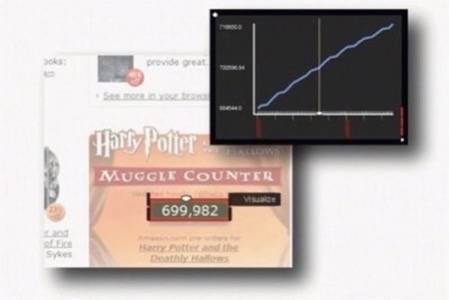Does Adobe think they can out-Google Google? Perhaps. The company is involved with Zoetrope, a joint project with researchers at the University of Washington. What they’re building is a tool that allows for manipulating the web over time. Instead of the snapshot of the web you see today when googling, Zoetrope will let anyone use keyword searches to discover archived web information and look for patterns in the data found.

About Zoetrope
As with the Internet Archive, the data in Zoetrope’s database is a backup of the entire web, including those pages which have changed over time. But this archive won’t be limited to the somewhat inconsistent periodic snapshots of the web’s content like the Internet Archive offers. It will encompass everything.
Using the intuitive Zoetrope interface, a user could compare historical changes of various data through time by comparing snapshots of different pages on the web. Analyzing different, changing elements on web pages, side-by-side and over a period of time is downright difficult today – if not impossible. But Zoetrope makes it happen.
The process is done using Zoetrope “lenses” to draw boxes around elements, connect data from one site to another, and pull up charts of relevant data, all while manipulating a slider to scroll back and forth through time. That may sound hard, but if you watch this video, you’ll see that it looks surprisingly easy.
For Everyone, Not Just The Computer Savvy
In a way, this project is similar to Google’s new visualization API, which lets developers use historical web data to build charts, graphs, gadgets, and the like. However, where Google’s tool is aimed at the technically savvy programmer, Zoetrope, on the other hand, is for the average user. Says Dan Weld, a UW computer science and engineering professor who worked on the project, “Zoetrope is aimed at the casual researcher. It’s really for anyone who has a question.”
As noted in the Washington University article on the project, example uses of Zoetrope could range from the basic: checking historical rankings of favorite players on a sports team, to the advanced: comparing daily air pollution levels in Beijing to number of world’s records broken each day in the 2008 Olympics.
“Your browser is really just a window into the Web as it exists today,” said Eytan Adar, University of Washington computer science and engineering doctoral student who’s also a co-author of the research paper on the project.
“When you search for something online, you’re only getting today’s results…This is really a new way to think about storing information on the Web.”
The researchers hope to offer Zoetrope for free as early as next summer.


Image credits: Color, Torley; Others, University of Washington

















